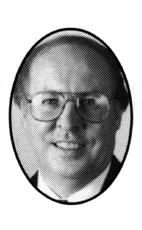Mr. Speaker, I am extremely pleased to speak today on Motion No. 239 calling for demilitarization of Cyprus.
I would like to express my thanks and support for the motion of my colleague from Saint-Denis. She has shown extraordinary commitment and perseverance in bringing forward this very impor-
tant motion. Those of us who are familiar with private members' business and its trials and tribulation think it is important that we note her efforts.
All members of the House are well aware of the long commitment Canada has made toward the peaceful resolution of the disputes in Cyprus. Canada has been an active participant in the resolution of those disputes for over 30 years, and we have acquired a deep knowledge and appreciation of that situation on that island.
Even though Canadian troops left the island in 1993, Canadians maintain a deep interest because of our Commonwealth ties, because of the experience of so many Canadians and because so many Canadians are of Cypriot background.
Today we are very worried. In the words of Secretary-General Boutros Boutros-Gahli: "Cyprus is a dangerous island". Its northern part is "one of the most densely militarized areas in the world". It is filled with arms and with soldiers and there are dangers which we hear about in the daily press.
Last week the hon. member for Saint-Denis mentioned that a Greek Cypriot was killed by a Turkish soldier. This summer we have heard about the conflict in the Mediterranean and the entire eastern Mediterranean is becoming a very dangerous place and a genuine threat to peace on a much broader level.
From the outset, Canada has supported the efforts of the United Nations and the international community toward the reunification of the island. This was embodied in security council resolution 939 and we concur with the principles of that resolution that a peaceful negotiated settlement, based on a federal structure that would take into account legitimate concerns and aspirations of both communities is the most promising solution.
Very recently the security council's five permanent members reaffirmed their full support for the good offices mission of the secretary-general and underlined the importance they attach to a comprehensive approach to an overall settlement of the Cyprus problem on the basis of the relevant security council resolutions and the discussions of 1977 and 1979.
That is why we are here today for this very important debate. Canada has an opportunity to take a lead in calling for demilitarization of the island. As you know, Mr. Speaker, from your own very important work in conflict resolution, demilitarization is a fundamental first step in achieving conflict resolution in situations similar to this situation in Cyprus.
In our own case we have played a dynamic and instrumental role in maintaining world peace through peacekeeping efforts, but in the case of Cyprus, Canadians peacekeepers were there for many decades and peace was not achieved. Therefore we took strong action through Mr. Clark who represented the secretary-general in trying to work out a solution. This year was, in the words of the United States "to be the year of Cyprus". It seemed that resolutions have been found for other conflicts in that part of the world in Bosnia and Israel. Perhaps they are not moving in the direction we would like at this moment, but this was the year that Cyprus would be approached. Mr. Holbrooke was to be President Clinton's personal representative but, alas, that was not achieved.
Today we are facing a situation in which demilitarization of northern Cyprus is a serious problem and we do not have the resolution we had hoped for a few months ago.
As the member for Saint-Denis pointed out, many other nations have adopted the same motion we are debating today. The United States, Australia, New Zealand, the European parliament and the Canadian government through the Commonwealth heads of government meeting have agreed to support the essence of this resolution. Given our nation's distinguished history in the area of peacekeeping, is it not a logical step to support the demilitarization of Cyprus?
It is unfortunate and indeed tragic that we are debating this issue today because it does indicate a failure on the part of the world community and of the United Nations. Despite more than 20 years of commitments, security council resolutions, high level discussions, we are left without a solution. If we are to attribute the super politics of the cold war to these difficulties, what is the answer now? We must look at the intransigence of the Turkish Cypriot government and of Turkey, as the previous speaker indicated.
As Canadians we are convinced that peaceful negotiations are the only solution. Since the failure of the 1993-1994 negotiating sessions we as Canadians have made repeated calls on both parties to redouble their efforts to resolve outstanding differences. Clearly there is no single solution to this complex issue. However, as the president of Cyprus pointed out in a letter to Boutros Boutros-Ghali, the secretary general of the UN, demilitarization is a major step in reducing the anxiety and mistrust on opposing sides. Without it a continued arms build-up is inevitable and the consequences can easily be predicted.
Many people, Greeks and Turks alike, are excited at the prospect that for the first time there is a possibility of strong international support for bringing peace to this beautiful but dangerous island.
What is important now is not finger pointing but rather conciliation, a desire for peace and a resolution of this conflict. As a nation Canada can help achieve this by supporting the motion and sending a clear message to those two choose the status quo that such intransigence will no longer be tolerated.

